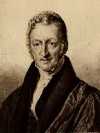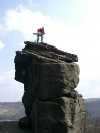 Classically, escapology is the art of escaping from rope bindings. It has since evolved to include escapes from a variety of restraints, including straightjackets, cages, chains, and prisons. In the early 1900s, Harry Houdini, a master escapologist, began performing his “Chinese Water Torture Cell” act. The escape required a bound Houdini to hold his breath for more than three minutes while freeing himself from a locked, water-filled glass tank. Illusionists before Houdini had relied on what? Discuss
Classically, escapology is the art of escaping from rope bindings. It has since evolved to include escapes from a variety of restraints, including straightjackets, cages, chains, and prisons. In the early 1900s, Harry Houdini, a master escapologist, began performing his “Chinese Water Torture Cell” act. The escape required a bound Houdini to hold his breath for more than three minutes while freeing himself from a locked, water-filled glass tank. Illusionists before Houdini had relied on what? Discuss
Source: The Free Dictionary
 A necropolis, Greek for “city of the dead,” is a large cemetery or burial ground. The term typically is used in reference to burial grounds that lie in close proximity to centers of ancient civilization. In fantasy literature, the word necropolis takes on a different connotation, often describing cities populated by zombies or the undead. The Hypogeum of Hal-Saflieni, which dates back to 2500 BCE, is probably the world’s oldest necropolis. Why did ancient Romans adopt the necropolis?
A necropolis, Greek for “city of the dead,” is a large cemetery or burial ground. The term typically is used in reference to burial grounds that lie in close proximity to centers of ancient civilization. In fantasy literature, the word necropolis takes on a different connotation, often describing cities populated by zombies or the undead. The Hypogeum of Hal-Saflieni, which dates back to 2500 BCE, is probably the world’s oldest necropolis. Why did ancient Romans adopt the necropolis?  Based on a belief in witchcraft, spirits, and demons, a superstition is the irrational idea that an object, action, or circumstance not logically related to a course of events influences its outcome. A common superstition in the Middle Ages was that the devil could enter a person’s body during the unguarded moment when he was sneezing. Some believe that the practice of saying “God bless you” began for this reason. What famous theologian accused the papacy of perpetuating superstition?
Based on a belief in witchcraft, spirits, and demons, a superstition is the irrational idea that an object, action, or circumstance not logically related to a course of events influences its outcome. A common superstition in the Middle Ages was that the devil could enter a person’s body during the unguarded moment when he was sneezing. Some believe that the practice of saying “God bless you” began for this reason. What famous theologian accused the papacy of perpetuating superstition?  Malthus was an English economist, sociologist, and demographer. He is best known for his 1798 pamphlet An Essay on the Principle of Population, in which he theorizes that poverty is an unavoidable consequence of population growth. He explained that populations grow at a geometric rate, while the means of subsistence expands arithmetically; thus, war, famine, and disease are necessary checks on population. In later editions, what did Mathus add as a fourth check on population?
Malthus was an English economist, sociologist, and demographer. He is best known for his 1798 pamphlet An Essay on the Principle of Population, in which he theorizes that poverty is an unavoidable consequence of population growth. He explained that populations grow at a geometric rate, while the means of subsistence expands arithmetically; thus, war, famine, and disease are necessary checks on population. In later editions, what did Mathus add as a fourth check on population?  Honey is the sweet, viscous fluid honeybees produce from flower nectar. Worker bees transport the nectar to the hive in their honey sac, and enzymes in the sac convert the nectar into honey. Bees produce honey in much greater amounts than they need to survive, and humans have made use of this excess honey for centuries. In addition to its uses in cooking and baking, honey has antibacterial properties and was used in ancient Egypt, Rome, and Greece as a wound salve. What is honey intoxication?
Honey is the sweet, viscous fluid honeybees produce from flower nectar. Worker bees transport the nectar to the hive in their honey sac, and enzymes in the sac convert the nectar into honey. Bees produce honey in much greater amounts than they need to survive, and humans have made use of this excess honey for centuries. In addition to its uses in cooking and baking, honey has antibacterial properties and was used in ancient Egypt, Rome, and Greece as a wound salve. What is honey intoxication?  Stem cells are unspecialized cells that can reproduce themselves for long periods of time using cell division, but are also capable of differentiating into almost any type of specialized cell. This unique ability makes them ideal for use in regenerative medicine. Adult stem cells are derived from umbilical cord blood and bone marrow. Embryonic stem cells are also used in medical research, but their use is more controversial. Why is there an ethical debate surrounding embryonic stem cell use?
Stem cells are unspecialized cells that can reproduce themselves for long periods of time using cell division, but are also capable of differentiating into almost any type of specialized cell. This unique ability makes them ideal for use in regenerative medicine. Adult stem cells are derived from umbilical cord blood and bone marrow. Embryonic stem cells are also used in medical research, but their use is more controversial. Why is there an ethical debate surrounding embryonic stem cell use?  The eye is an organ of vision and light perception. In the human eye, the iris diaphragm regulates the size of the pupil, allowing more or less light to enter the eye as necessary. Light is focused by the combined action of the curved cornea, internal fluids, and lens. When light reaches the retina, located at the back of the eye, the light-sensitive rod and cone cells are stimulated. They, in turn, send signals to the brain via the optic nerve. How do the rods and cones differ in function?
The eye is an organ of vision and light perception. In the human eye, the iris diaphragm regulates the size of the pupil, allowing more or less light to enter the eye as necessary. Light is focused by the combined action of the curved cornea, internal fluids, and lens. When light reaches the retina, located at the back of the eye, the light-sensitive rod and cone cells are stimulated. They, in turn, send signals to the brain via the optic nerve. How do the rods and cones differ in function?  The drive-through system, developed in the US in the 1940s, has revolutionized business practices worldwide. Drive-through establishments provide service to customers who remain in their vehicles throughout the transactions. Typically, orders are taken over a speaker system and are picked up and paid for at a window. This speedy setup can be found at restaurants, banks, pharmacies, and liquor stores worldwide. What unconventional drive-through service is available in Las Vegas, NV?
The drive-through system, developed in the US in the 1940s, has revolutionized business practices worldwide. Drive-through establishments provide service to customers who remain in their vehicles throughout the transactions. Typically, orders are taken over a speaker system and are picked up and paid for at a window. This speedy setup can be found at restaurants, banks, pharmacies, and liquor stores worldwide. What unconventional drive-through service is available in Las Vegas, NV?  The sport of extreme ironing, in which people take an iron and ironing board to a remote location and perform the typically mundane household chore in an extreme setting, was developed by Englishman Phil Shaw in 1997. Shaw’s 1999 international tour promoted the activity, which, according to the official website, is “the latest danger sport that combines the thrills of an extreme outdoor activity with the satisfaction of a well-pressed shirt.” In what adventurous settings has it been done?
The sport of extreme ironing, in which people take an iron and ironing board to a remote location and perform the typically mundane household chore in an extreme setting, was developed by Englishman Phil Shaw in 1997. Shaw’s 1999 international tour promoted the activity, which, according to the official website, is “the latest danger sport that combines the thrills of an extreme outdoor activity with the satisfaction of a well-pressed shirt.” In what adventurous settings has it been done?  Turkish coffee is prepared in a special pot called a cezve and is made from finely ground coffee, cold water, and sometimes sugar. In Turkey, sugar content is determined based on a ranking system that includes 4 levels of sweetness. The coffee is served in small fincan similar to Italian espresso cups, and its sludgy grounds settle in a thick layer at the bottom. Often, a finished cup is turned upside down on a saucer and the patterns left by the grounds are examined for what?
Turkish coffee is prepared in a special pot called a cezve and is made from finely ground coffee, cold water, and sometimes sugar. In Turkey, sugar content is determined based on a ranking system that includes 4 levels of sweetness. The coffee is served in small fincan similar to Italian espresso cups, and its sludgy grounds settle in a thick layer at the bottom. Often, a finished cup is turned upside down on a saucer and the patterns left by the grounds are examined for what?